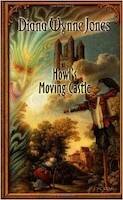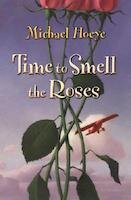Review: The Half-Drowned King (The Golden Wolf Saga #1)
/5 stars. I cannot express how grateful I am for stories like this during times like these. The tale of Harald Fairhair's conquest of Viking-age Norway doesn't exactly have the most delightful, funny, feel-good vibes, but every time I slipped into these pages I felt relieved - a true escape. The Half-Drowned King is Harald's origin story told through the eyes of Ragnvald Eysteinsson, a young and skilled warrior attempting to navigate his coming-of-age, his birthright, his complicated family, his allegiances, and his desire for glory. After a harrowing betrayal and attempt on his life, Ragnvard finds himself caught between kings and fates as war descends on his harsh, beloved homeland.
I quite admire this book because what happens in it is unusual. Sure, we have the usual suspects - revenge, duels, shield walls - but we also have flawed characters making imperfect decisions on wavering, unclear journeys. Solvi and Svanhild's relationship, for example, twists and turns in ways I can't stop thinking about. Ragnvold makes predictable mistakes and unpredictably learns from them; in fact, every major character has ugly qualities as well as heroic ones. None of it - within Hartsuyker's halting and unique prose - feels cliche, or typical, or traditional. It reads like a softer, fresher version of The Last Kingdom, though I reject comparisons to ASOIAF (hi, a book can have swords and more than one POV and not be Game of Thrones, thanks).
I also really appreciated the way Hartsuyker has her characters look back at the sagas and stories and songs of their history similar to the way we look back at, for example, the sagas of Viking-age Norway. When one character tells another that her experiences sound like something from "one of the old songs," it's a self-aware nod to the nature of Hartsuyker's story. And while that nature for sure has an epic fairy tale flavor to it, this technique also essentially grounds and humanizes her heroes and kings (and queens) and underscores the fact that legends have their own legends; no "age" is untouched by the "age" before it. Legacy is a driving force for her characters. I quite love it when a book doubles down on the importance of stories.
It's a complicated one, and reading it requires energy and effort. Figures poke at and orbit around each other in patchy, tricky ways. But it is rewarding, with its subtleties and deft plotting and its understanding of identity and honor. The politics, once they click into place, are not difficult to grasp. It is as oddly romantic as it is brutal, and I would hope to see the characters eased of their burdens in the future books. I've grown to love them, and I dread their fates. Still, I look forward to escaping into this dark and magical world for a bit longer. I think I will dream of icy waves and crackling fires and roasted meat tonight.
The Half-Drowned King on: Amazon | Bookshop.org | Goodreads










